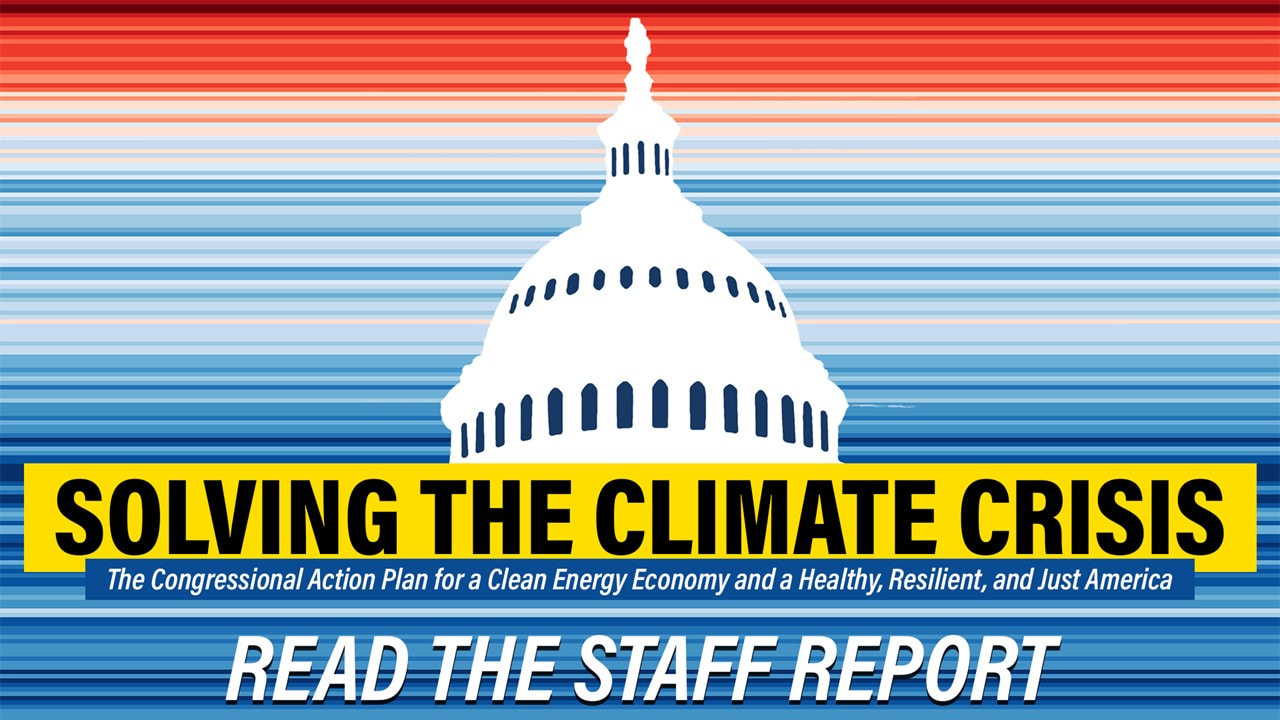
SCCC summary.pdf (house.gov)
With the promotion of Senator Schumer to Senate Majority Leader, this plan no longer can be ignored or dismissed. Yet despite Democratic control of both houses and the presidency, we should expect stiff resistance from vested interests, especially the fossil fuel industry. Resistance not-withstanding, President Biden’s first day in office brought an executive order ending the XL pipeline, a leaky and dangerous means of transporting fossil fuels. Presidential executive authority, however, offers transient change, durable only until the next administration. That’s why Schumer’s placement is so very important. Legislation is so much more durable. Unlike executive orders that can be easily negated, legislation requires repeal which can be difficult to accomplish.
In mid-January 2021, Congresswoman Kathy Castor (D-FL) presented a web-based information session on climate. She introduced the roadmap that the House Select Committee on Climate Change wrote in the Majority. Her goal for the session was to build acceptance for the idea of a comprehensive plan and secure participant support. Details extracted from the report made the webinar fast paced but overly simplified.
Having taught history for many years, I became one of those who espoused a more complex way of dealing with historical events. Events in history are outcomes of numerous factors that interact with each other – outcomes of convergence. In weather, a historic event like a hurricane depends on factors like barometric pressure, high altitude wind patterns, warm ocean waters, etc. Missing any one of the contributing factors and a hurricane does not happen. Increasing or decreasing factors changes the direction, intensity, and/or duration of the storm. Change, then, can happen exponentially. A “perfect storm” can be the result.
Dealing with climate change is to address the convergence of factors that are leading to a ‘perfect storm” of disastrous proportions. The Select Committee’s report reflects this interaction of factors. These factors are parsed in the report, but it must be kept in mind that it is the convergence of the factors that is so dangerous. The dangers of the climate crisis transcend geo-political and academic discipline boundaries. Fires in the Amazon, for instance, reduce CO2 conversion as the trees disappear. This in turn contributes to ocean warming and so on until climate change becomes a swirling vortex of change compounding change.
As a situation that is at once abstract and concrete, any bold response to climate change also will have to be both abstract and concrete: abstract in the ongoing science required to evaluate it, and concrete in the immediate, intermediate, and long-term actions required to address it.
It certainly is in keeping with the NAC mission to advocate for legislation to address the climate crisis. Each, in our own enlightened way, must do what we can because the actions we take can contribute to the long-term impacts.
I can give you a prime example of the crossing and intermixing of problems in this climate crisis. With climate change, weather is unstable. In areas like Central America, runoff from fierce rainstorms and powerful hurricanes depletes soil nutrients. As a result, farmers must seek alternative ways to make a living; there is no other option than to migrate for survival. Emigration has a climate change component to it. To solve one problem is to force resolution of other ones.
Over the next year, this blog will report on the status of legislation, presenting summaries of different components of bills as legislation moves through committees in both the House and Senate. We can draw hope from the fact that, for the next two years, climate change legislation will be presented in both houses for an up or down vote. That’s a reality that has been missing for many years. May these pieces of legislation contribute to a convergence of actions that bring about the mitigation of climate change critical for survival.

 RSS Feed
RSS Feed